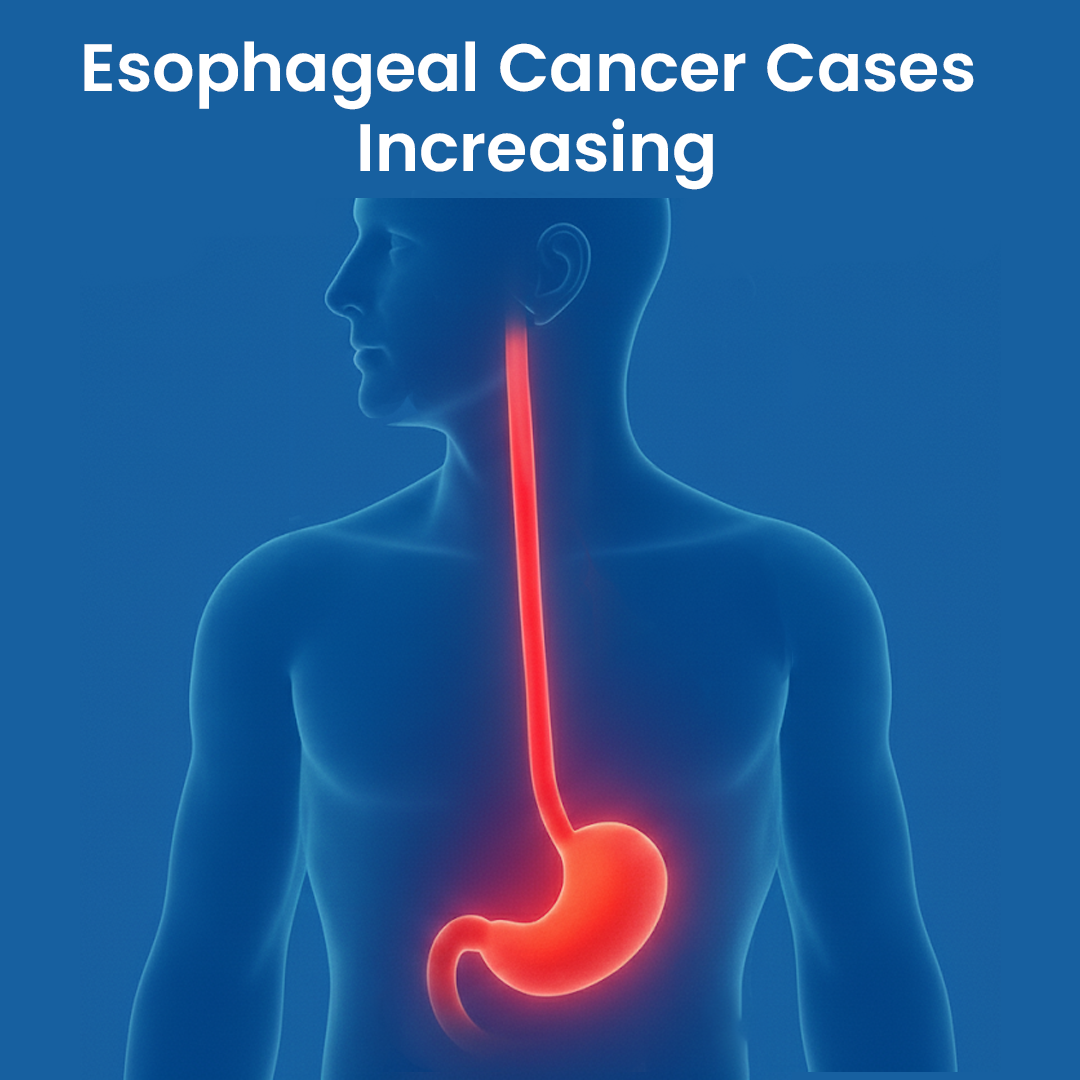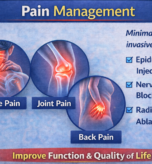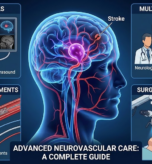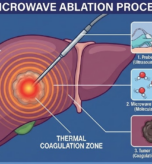Esophageal Cancer: Early Signs, Risk Factors, and Why Awareness Matters
Introduction
Cancer is one of the biggest health problems today. Among its many forms, esophageal cancer is gaining attention because more people are getting it. Unfortunately, many do not know its early signs. They often think it is only a stomach issue. As a result, the cancer is often found late. At that stage, treatment is harder.
The good news, however, is that awareness, prevention, and early checks can help. Moreover, knowing the risk factors allows people to protect their health. In this article, we explain esophageal cancer. We cover its signs, causes, risks, and treatment options.

What Is Esophageal Cancer?
The esophagus is a tube. It carries food and liquid from the throat to the stomach. When cells in the lining grow too fast, tumors form. This is called esophageal cancer. It is the seventh most common cancer worldwide. It is also the sixth leading cause of cancer deaths.
There are two main types:
- Squamous cell carcinoma – found in the upper and middle esophagus.
- Adenocarcinoma – found in the lower esophagus, often linked to reflux.
Therefore, knowing the type helps doctors choose the right treatment.
Early Symptoms: What You Should Watch For
One challenge with this cancer is that it is often missed early. However, spotting warning signs can lead to faster diagnosis. This also improves results.
Watch for these signs:
- Trouble swallowing (dysphagia): Food feels stuck in the throat or chest.
- Chest pain or discomfort: A burning or heavy feeling behind the breastbone.
- Unexplained weight loss: Weight drops without trying.
- Chronic cough or hoarseness: Caused by irritation from the tumor.
- Persistent reflux or heartburn: Does not improve with changes or medicine.
If these problems continue, it is crucial to see a doctor. In other words, do not delay medical help.
Risk Factors You Should Know
Esophageal cancer does not appear overnight. Instead, some risks build over time. For instance:
- Smoking and alcohol – strongly linked to squamous cell carcinoma.
- Long-term acid reflux (GERD) – harms the esophagus lining.
- Barrett’s esophagus – a reflux problem that raises cancer risk.
- Obesity – increases reflux and the chance of adenocarcinoma.
- Diet habits – few fruits or vegetables, or very hot drinks.
- Age and gender – more common in men and in people over 50.
Therefore, knowing these risks helps people make better choices. Moreover, health checks can find issues sooner.
Diagnosis and Modern Treatment Options
Finding esophageal cancer early can improve survival. Consequently, doctors use several tests:
- Endoscopy: A camera test to look inside the esophagus.
- Biopsy: A small tissue sample checked under a microscope.
- Scans (CT, PET): Used to see if the cancer has spread.
Treatment depends on stage and type. Options include:
- Surgery: Removing the tumor or part of the esophagus.
- Chemotherapy and radiation: Used to shrink or kill cancer cells.
- Targeted therapy and immunotherapy: New drugs that attack cancer cells with fewer side effects.
- Minimally invasive methods: Less painful options for some patients.
Moreover, doctors now focus not only on treating cancer but also on improving life quality.
Prevention and Lifestyle Changes
Not all cases can be stopped. However, lifestyle changes lower risk. For example:
- Quit smoking and drink less alcohol.
- Keep a healthy weight.
- Eat more fruits and vegetables.
- Control reflux with diet, medicine, or doctor care.
- Get check-ups if you have Barrett’s esophagus or chronic GERD.
In addition, avoid very hot drinks and processed foods. Above all, prevention is better than cure. Even small steps can reduce the chance of cancer.
Conclusion
Esophageal cancer is increasing, but awareness and early care can save lives. Therefore, do not ignore signs like swallowing trouble, weight loss, or long-term reflux.
If you or someone you know has these symptoms, see a doctor soon. It can bring peace of mind. Finally, remember that early detection not only improves survival but also makes life better






